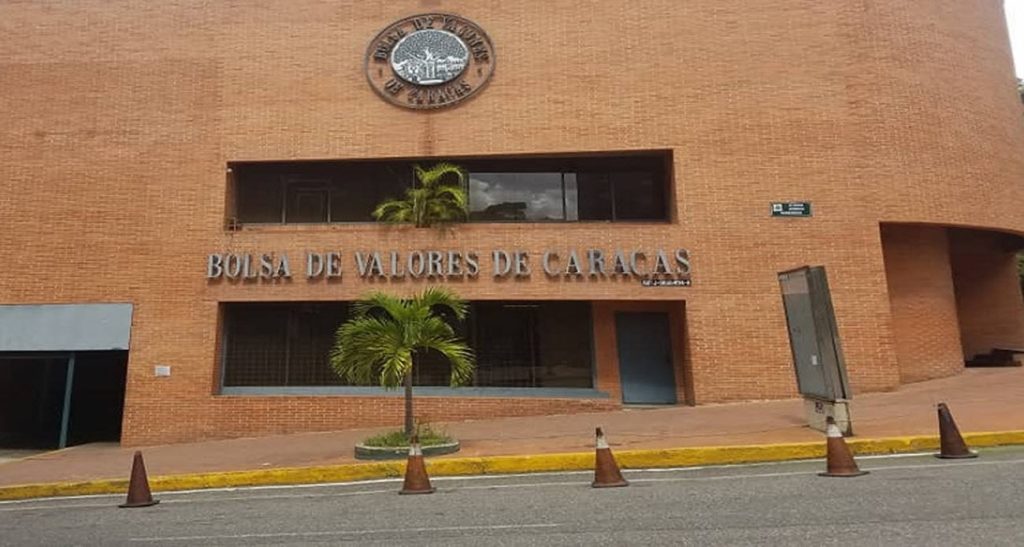What Is the Caracas Stock Exchange?
The Caracas Stock Exchange (Bolsa de Valores de Caracas, or BVC) is Venezuela’s principal stock market. Founded in 1947 and based in the capital city of Caracas, it remains active on paper—trading, listing, and functioning under local financial law—but in practical terms, it’s a shallow, low-volume, and highly disconnected market. It exists more as a symbol of formality than as a place for real capital formation or investment.
Still, it operates daily. It has listed companies. Trades are executed. Dividends are paid (sometimes). And for local investors locked out of the global financial system, it serves as one of the few available tools for preserving wealth—albeit imperfectly.

How the Caracas Stock Exchange Actually Works
The BVC is a privately-run institution overseen by Venezuela’s National Securities Superintendency (SUNAVAL). It lists roughly 30 to 40 companies, although only a handful are truly active or liquid. Sectors include:
- Banking and financial services
- Food and beverage
- Insurance
- Real estate
- Construction materials
The exchange uses an electronic auction system called SIBE (Sistema Integrado Bursátil Electrónico) for order matching. There’s also a fixed income segment where some local corporate and municipal bonds trade, though that activity is minimal.
Trading is done in bolívares, the local currency. Given ongoing inflation and devaluation, prices are often adjusted by informal dollar conversion rates when investors evaluate company performance or dividend yields.
Who Uses It?
The market is mostly populated by local institutions, high-net-worth individuals, and private banks trying to preserve capital within the country. Foreign participation is functionally nonexistent, both because of capital controls and because there’s no reliable custodian or foreign access infrastructure.
In the past, the BVC had limited connections to foreign investment flows, including some Venezuelan ADRs traded in the U.S. or Europe. Today, that pipeline is essentially dead. Listings are static, liquidity is thin, and no meaningful international capital flows through it.
Volume, Liquidity, and Valuation
This is not a liquid market. On many days, total trading volume for the entire exchange is less than $100,000 equivalent. Some stocks go weeks without trades. Bid-ask spreads are wide. Price discovery is slow. Information is poor.
Valuations are difficult to interpret because most financials are either outdated, heavily adjusted for inflation, or based on bolívar-denominated reports that don’t translate easily into international accounting terms. Investors rely on a mix of informal financial data, anecdotal evidence, and on-the-ground experience to assess a company’s worth.
Listed Companies of Interest
While the number of active firms is small, a few names are worth noting for anyone tracking economic activity inside Venezuela:
- Mercantil Servicios Financieros – major private banking group
- Fondo de Valores Inmobiliarios (FVI) – involved in real estate and commercial property
- Envases Venezolanos – packaging firm tied to consumer staples
- Domínguez & Cía – diversified industrial firm
These companies aren’t globally relevant, but they offer a window into sectors that still function despite the broader economic crisis.
Dividends and Earnings
Some companies continue to pay dividends—often small and bolívar-denominated, but significant in a hyperinflationary context. For local investors, dividend-paying stocks offer a partial hedge against devaluation, though converting those returns to hard currency is another challenge altogether.
Regulation and Oversight
The exchange is regulated by SUNAVAL, which enforces financial disclosure rules and trading regulations. In practice, enforcement is inconsistent. Most disclosures are delayed, incomplete, or limited to mandatory filings. Analysts rarely cover the market, and there’s no equivalent of Bloomberg terminals or real-time news for most of these stocks.
Accounting standards vary. Some companies try to apply inflation-adjusted IFRS norms, but this is more exception than rule. Transparency is poor.
Why the Caracas Stock Exchange Still Exists
It serves a purpose: it’s a legal and financial tool for preserving bolívar-denominated wealth in an environment with few options. Think of it less like the NYSE and more like a wealth parking mechanism for Venezuelan investors, especially banks and family offices that can’t move capital abroad or prefer to stay under the radar.
It also gives some companies access to local capital, even if small, and allows owners to create liquidity events inside a closed economy. In a hyperinflationary system, even micro-level liquidity is worth something.
Can Foreigners Invest?
Technically yes, but realistically no. There’s no direct access, no foreign brokers offering exposure, no legal custodians servicing international accounts, and no trustworthy process for repatriating gains. A foreigner would need to:
- Form a local company or use a proxy
- Fund that entity in dollars or bolívares
- Buy through a local broker connected to BVC
- Trust the system to hold and return assets later
This might work for Venezuelan expats or Latin American investors with trusted local partners, but it’s not practical for most foreign retail or institutional players.
Is It Worth Tracking?
If you’re betting on a Venezuela economic recovery, the BVC is a thermometer—not the engine. It reflects sentiment among domestic investors and business elites. When optimism returns, you’ll see price spikes here first—because there’s nowhere else for money to go.
But as a tradable market, it’s nearly irrelevant for global investors. There’s no ETF, no ADR, no cross-listed opportunity, and no volume to move into without influencing price.
Final Take
The Caracas Stock Exchange is alive, but barely. It’s not a place to trade—it’s a place to watch if you’re serious about understanding how Venezuela’s private sector is navigating a broken financial system.
If you’re looking for real Venezuela exposure, you won’t find it in stock tickers. You’ll find it in direct investments, distressed assets, and private holdings—not listed shares.
For strategic, real-world access to Venezuelan investments, including tourism, real estate, and off-market assets, Orenoque Invest offers due diligence support and private deal sourcing in sectors that still function—quietly—beneath the headlines.